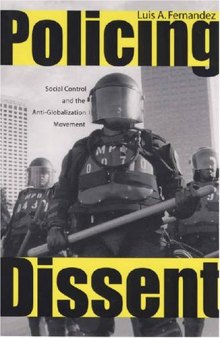 جزییات کتاب
جزییات کتاب
In November 1999, fifty-thousand anti-globalization activists converged on Seattle to shut down the World Trade Organization's Ministerial Meeting. Using innovative and network-based strategies, the protesters left police flummoxed, desperately searching for ways to control the crowds in Seattle and the emerging anti-corporate globalization movement. Faced with these network-based tactics, law enforcement agencies transformed their policing and social control mechanisms to manage this new threat. In Policing Dissent, sociologist Luis A. Fernandez provides a firsthand account of the changing nature of control efforts employed by local, state, and federal law enforcement agencies when confronted with mass activism. Based on ethnographic research, and using an incisive, cutting-edge theoretical framework, Fernandez maps the use of legal, physical, and psychological approaches. Policing Dissent also offers readers the richness of experiential detail and engaging stories often lacking in studies of police practices and social movements. This book does not merely seek to explain the causal relationship between repression and mobilization. Rather, it shows how social control strategies act on the mind and body of protesters.



 دانلود کتاب
دانلود کتاب

 جزییات کتاب
جزییات کتاب





 این کتاب رو مطالعه کردید؟ نظر شما چیست؟
این کتاب رو مطالعه کردید؟ نظر شما چیست؟
